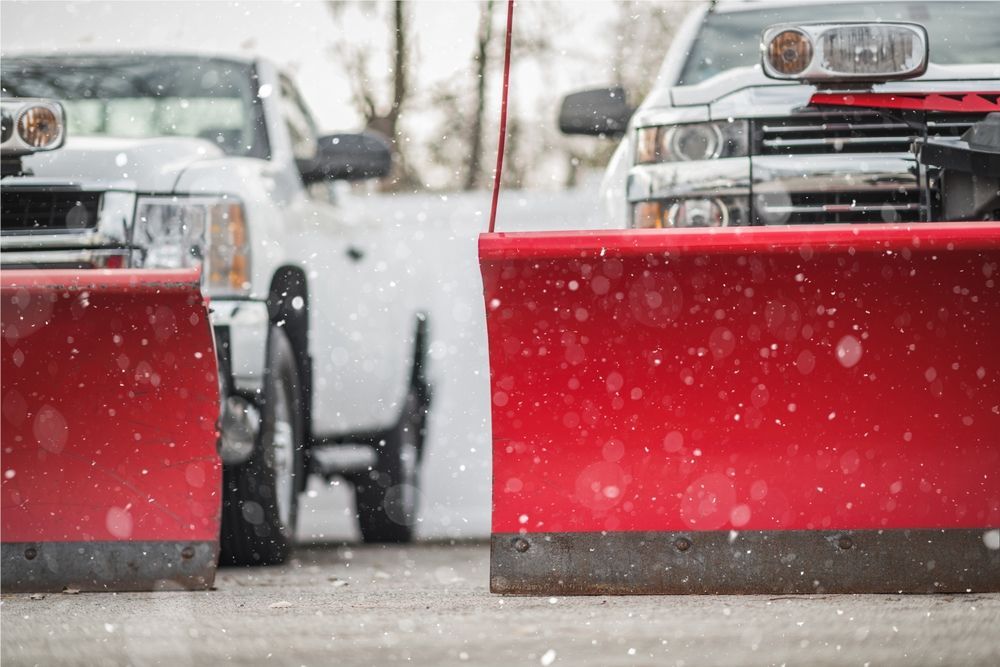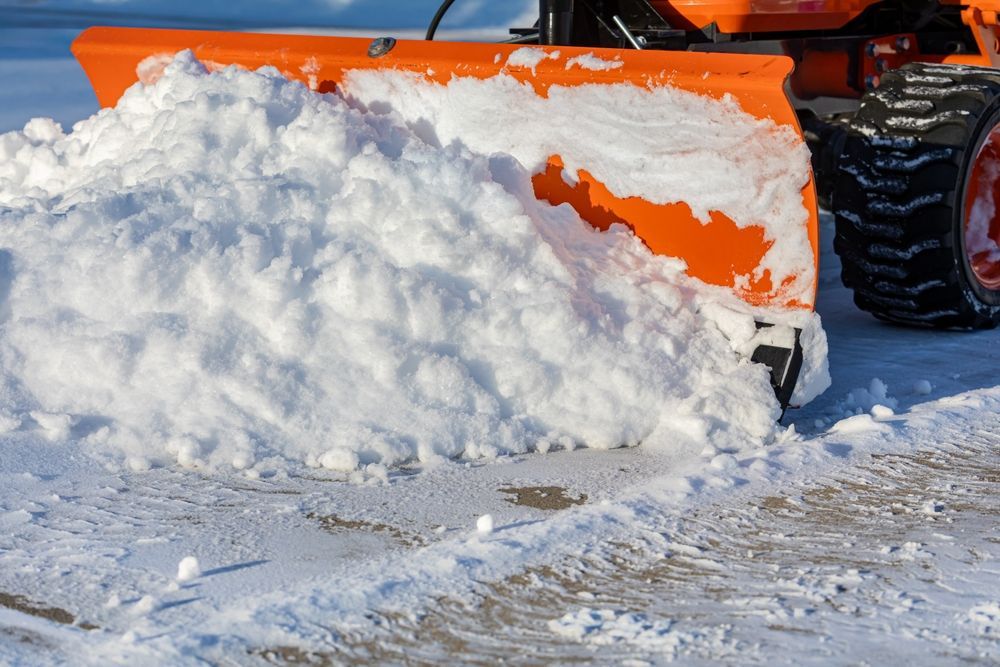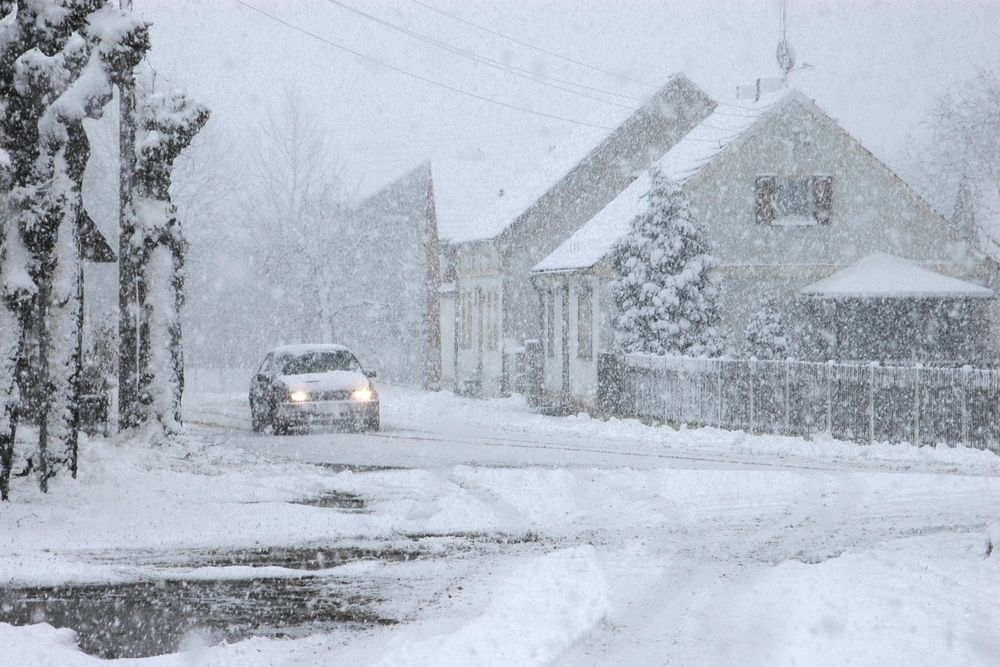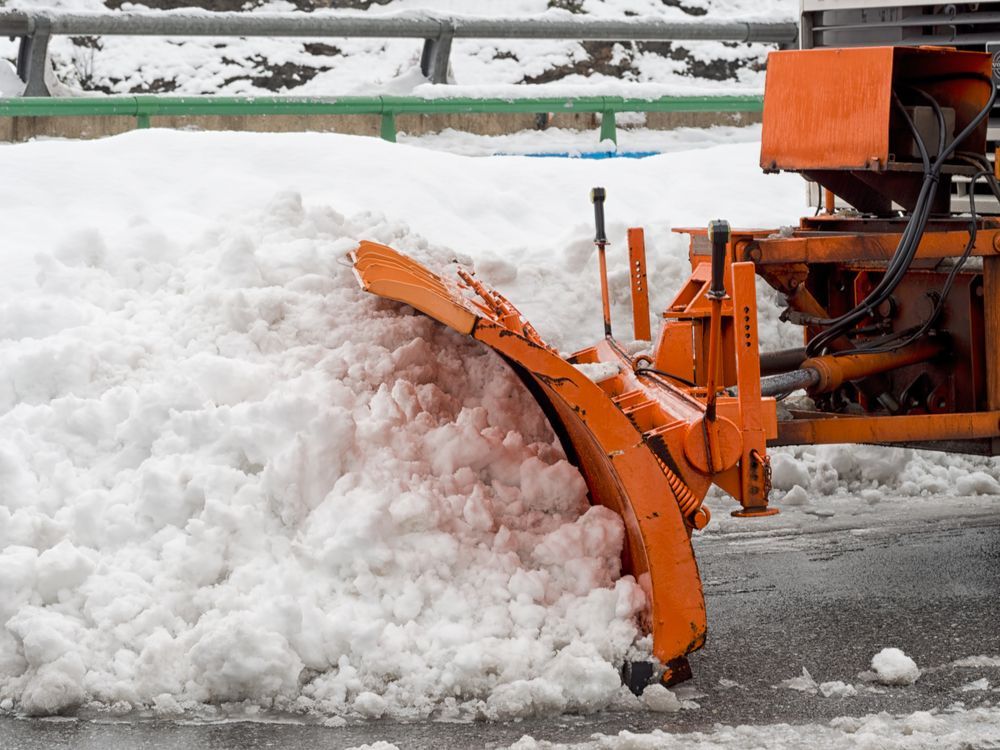Why 2-Inch Snow Triggers No Longer Work for Commercial Snow Contracts
For years, many snow removal contracts have relied on a 2-inch trigger — meaning snowplowing doesn’t begin until two inches of accumulation are on the ground.
While this once seemed practical, in today’s environment of high liability and elevated service expectations,
2-inch triggers simply don’t work anymore.

The Problem with the 2-Inch Trigger
Under a 2-inch trigger, snow removal operations only begin after two inches have accumulated. However, ice melters can only effectively melt about ¾ of an inch of snow. This creates a dangerous gray area between what ice control materials can handle and when plowing is allowed to start.
Contractors often find themselves in a tough position — knowing the property is getting slippery, but unable to act until the trigger is reached.
The result? Unsafe conditions, property risk, and frustrated clients — even though the contractor followed the contract exactly.
Why 1-Inch Triggers Are the New Standard
Modern commercial snow management prioritizes prevention over reaction. A 1-inch trigger ensures properties are serviced
before conditions become hazardous.
Benefits of a 1-Inch Trigger
- Improved safety: Slippery conditions can form well before 2 inches of accumulation. Early service prevents slip-and-fall incidents.
- Better salt efficiency: Salt doesn’t work effectively in snow deeper than 1 inch — it becomes buried and wasted.
- Reduced hardpack: Treating snow early prevents it from bonding to the pavement, reducing mechanical scraping later.
- Lower long-term costs: Light, frequent service is cheaper than removing hardened snow after multiple untreated events.
A
1-inch trigger isn’t just about safety — it’s about smarter, more efficient snow management.
The Hidden Cost of Waiting
When multiple small snowfalls aren’t serviced,
hardpack snow begins to form — a dense, compacted layer that bonds to pavement.
Once it sets in, it can take
two to three times more salt, equipment, and labor to restore the surface to bare pavement.
The idea of “saving money” by waiting for 2 inches quickly backfires. It leads to
higher operational costs and exposes properties to
greater slip and fall liability.
The Liability Gap
Property owners expect safe, clear pavement — regardless of the contract terms. But when a 2-inch trigger delays service,
liability increases.
If a slip or fall occurs, the contractor often bears the blame for “inadequate service,” even when they’ve followed the agreement perfectly.
By moving to a
1-inch trigger, property managers close that gap — ensuring both compliance and safety.

An Ounce of Prevention Is Worth a Pound of Cure
The old saying sums it up perfectly:
“An ounce of prevention is worth a pound of cure.”
At Great Lakes Snow, we believe proactive winter service is the only way to protect your property, your people, and your reputation.
That’s why our snow and ice management contracts are designed around 1-inch triggers — delivering consistent, reliable protection against snow and ice before it becomes a problem.
Because in the world of winter risk management, waiting for two inches is waiting too long.
Ready to upgrade your snow contract?
Contact
Great Lakes Snow today to discuss proactive, liability-reducing snow management solutions designed for safety, efficiency, and peace of mind.





